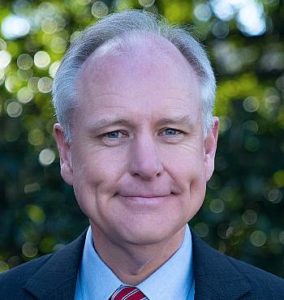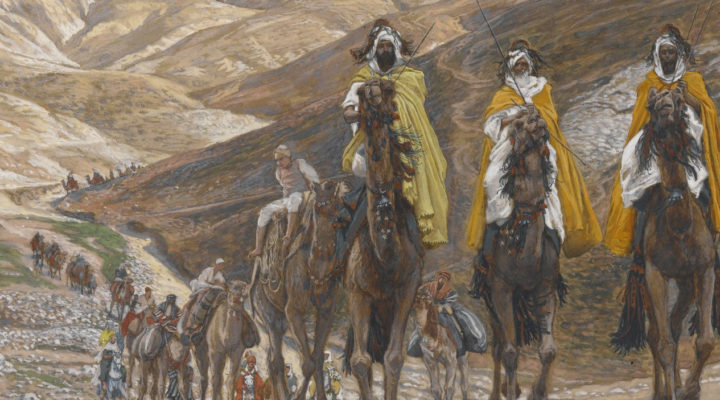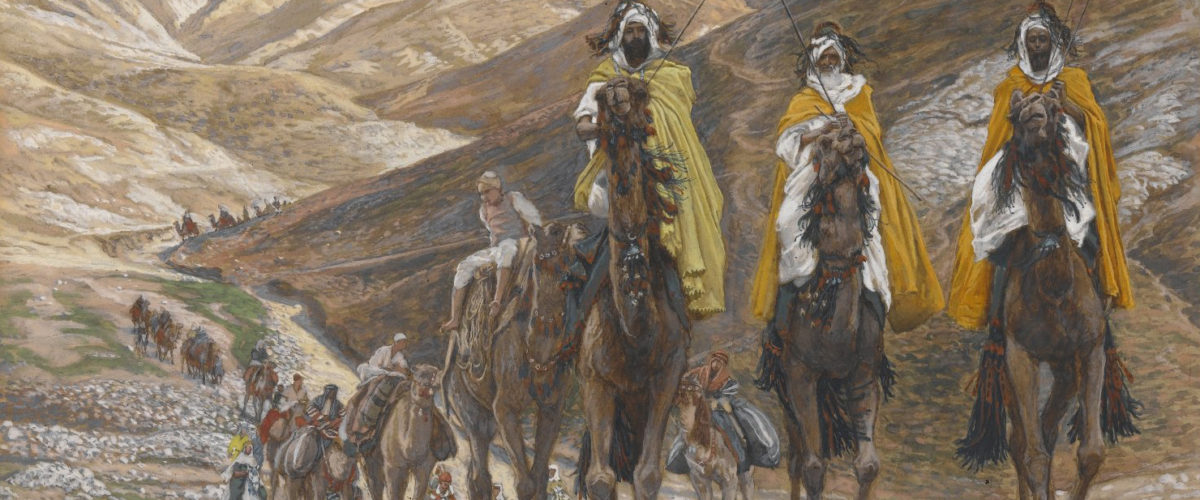Today is the Day of Epiphany. It is the day the church sets aside to remember the journey of the magi to see the young child Jesus and his family as recorded in the second chapter of the Gospel of Matthew.
Most of the time, it seems my hearing of this text focuses on its conclusion — that beautiful moment when the magi arrive at the home of Mary and Joseph and then enter, bow down and worship our Lord Christ. How could the eyes of our hearts and minds not be drawn to the compelling sight of these travelers from far away bringing gifts and worshiping Jesus?

Paul Baxley
But today my mind is first and foremost on the journey they traveled to get to the presence of Christ.
There’s much we don’t know about these mysterious strangers. We don’t know exactly where they came from, or precisely how far they traveled or even what kind of people they were. Just a cursory glance at the commentaries reveals so many uncertainties. Are they kings or astrologers? How many of them are there? Where did their journey begin? What motivated them?
It is hard not to believe their journey was long. Surely along the way they encountered difficult and unexpected challenges. At times they had to wonder if they had done the right thing leaving the familiarity of home and family behind to make such an unusual pilgrimage. We know they met resistance from at least one government. Were there sleepless nights? Were there days of sheer exhaustion? Did they wonder if they would ever make it?
My mind has been drawn more and more to the journey of the magi this year because I think there’s a good chance their journey is a lot like the one we’ve all been traveling at least since early March. We’ve known incredible challenges in our own lives, in our congregations and in our country. While there have been times when the way we have responded to the unexpected dramatic changes with faithful agility and resurrecting innovation has been exhilarating, there have been many more days that have been exhausting.
“Along this difficult road, we’ve all experienced the pain of homesickness.”
Along this difficult road, we’ve all experienced the pain of homesickness — we’ve longed for the familiar sights of gathered congregations and the habits that have been our vocational home. We miss the routine of in-person visits to church members, handshakes and hugs at church doors.
This homesickness has shown up when church members and loved ones have died of COVID-19 or other causes and we couldn’t be with them or their families in person, and we couldn’t offer God thanks for their lives in all the usual ways.
The pain of homesickness has been particularly acute in the weeks of Advent and Christmas as we have sought ways to proclaim truth and light candles in a world where congregational singing and normal practices are just not safe or possible. When that longing for what used to be home has been strongest, we’ve struggled with the temptation to get back to “normal” even when doing so would be exceptionally dangerous.
Like the magi, we not only have struggled with homesickness along this road, we’ve also met resistance from all kinds of powers and principalities. We’ve also been seeking language that calls for healing, justice and authentic reconciliation in a world so broken by injustice, polarization and struggle.
“Naming the obvious injustice around us has been very costly for some.”
Naming the obvious injustice around us has been very costly for some; it has brought us not only conflict with governing authorities but also within congregations.
Speaking faithful, gospel truth in a world overtaken by misinformation and where partisanship has become the deepest identity marker for far too many people has been exceptionally difficult. Yet we are increasingly aware that the search for racial justice is not optional, but instead it is integral to Micah’s command that we do justice and central to the message and ministry of reconciliation that the triune God has entrusted the church.
Yes, this road we have been on has been long, difficult, lonely and exhausting. And even though a new year has begun, we are still facing all the same challenges that emerged in 2020 and many of them with even greater intensity. Maybe that’s why it’s hard not to imagine all those realities in the journey of the magi.
And yet, like the magi in the midst of their journey, we are compelled to go on. Instead of giving up, or giving in, we hold one another in prayer and, in faith, we go on.
We go on serving, loving and speaking. We are compelled by the love of Christ. We are compelled by the awareness that the message and ministry we have been given is essential. We are strengthened by the prayers and acts of encouragement of holy friends within and beyond our congregations. We are held fast by the promise of renewal we first heard in Isaiah 40:
The Lord is the everlasting God, the Creator of the ends of the earth.
He does not faint or grow weary; his understanding is unsearchable.
He gives power to the faint and strengthens the powerless.
Even youths will faint and be weary and the young will fall exhausted.
But those who wait for the Lord shall renew their strength,
They shall mount up with wings like eagles, they shall run and not be weary;
They shall walk and not faint.
The source of our hope, our energy and our continued faithfulness is not contained in the changing of the year or any other change in our surroundings. Instead, the God who called us wherever we were and set us out on this journey will renew our strength.
“When we faint and grow weary, we are held in love and power.”
Even in — especially in — difficult and unexpected challenges, when we faint and grow weary, we are held in love and power. The Christ who is the end of our journey is also our strength all along the way. He still speaks to us: “In the world you face tribulation, be of good cheer. I have overcome the world” (John 16:33).
The gospel promise for us, and for those we serve, is that we will find ourselves in the surprising yet life-altering presence of Christ. There we will be changed.
Held by the renewing presence of God and compelled by the love of Christ that meets us and renews us, my prayer for you, for congregations, for all of us, is that, like the magi, we will go on in faith, hope and love, that we will go on until we become instruments of healing, grace, love and justice in this broken and divided world.
On this Day of Epiphany, held by the Holy Spirit, let us resolve to go on.
Paul Baxley serves as executive coordinator of the Cooperative Baptist Fellowship based in Decatur, Ga.


